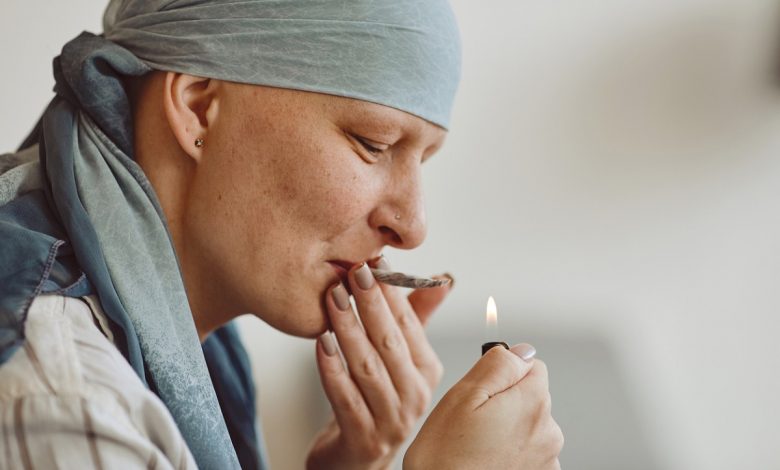The Risk Of Cannabis In Cancer: An Analytical Overview

Cannabis In Cancer: Cannabis, commonly known as marijuana, has been a subject of both medical and recreational use across various cultures and regions.
While its medicinal benefits, including pain relief and appetite stimulation, have been well-documented, the potential risks associated with its use have also drawn significant attention.
Cannabis In Cancer, Recent studies suggest that excessive cannabis consumption might be linked to an increased risk of certain types of cancer. This essay aims to explore the relationship between cannabis use and cancer risk, focusing on recent research findings and underlying mechanisms.
Cannabis In Cancer
Cannabis And Cancer Risk: Recent Research Findings
Cannabis In Cancer, A recent study published in the Journal of the American Medical Association highlights the potential cancer risks associated with frequent cannabis use.
According to this study, regular consumption of cannabis is associated with a 3.5 to 5 times higher risk of developing cancers of the head and neck compared to those who do not use cannabis regularly. This finding is particularly alarming given the high prevalence of cannabis use in various populations.
The research utilized data from over four million American patients, examining 20 years of health records from 64 medical centers. The study found that out of 116,000 individuals who were identified as having cannabis use disorder between 2004 and 2024, those who frequently used cannabis were at an increased risk of cancers such as oral and laryngeal cancers.
Cannabis In Cancer, It is noteworthy that while the risk for hypopharyngeal cancer was not significantly elevated, the overall pattern suggested a link between cannabis use and cancer development.
Cannabis In Cancer
Mechanisms Of Carcinogenicity
Cannabis In Cancer, Understanding the mechanisms through which cannabis might influence cancer risk involves examining both the chemical composition of cannabis and its physiological effects. Cannabis contains over 100 cannabinoids, including tetrahydrocannabinol (THC) and cannabidiol (CBD), which have complex interactions with the human body.
Cannabis In Cancer
Chemical Composition And Carcinogenicity:
THC: THC is the primary psychoactive component of cannabis. Studies suggest that THC and other compounds in cannabis smoke may be carcinogenic. The combustion of cannabis releases several toxic substances and carcinogens similar to those found in tobacco smoke, such as polycyclic aromatic hydrocarbons (PAHs) and nitrosamines, which are known to cause cancer.
CBD: CBD, on the other hand, is not psychoactive and has been studied for its potential anti-cancer properties. While some research suggests that CBD may inhibit the growth of cancer cells, its effects are still not fully understood, and it is not yet clear whether it can counteract the carcinogenic effects of THC.
Cannabis In Cancer
Inflammatory Pathways:
Cannabis In Cancer, Smoking cannabis can activate inflammatory pathways in the body. Chronic inflammation is a well-known risk factor for cancer development. Cannabis smoke contains irritants and carcinogens that may lead to chronic inflammation in the respiratory tract, potentially increasing the risk of cancers in the head and neck region.
Cannabis In Cancer

Immune System Modulation:
Cannabis affects the immune system in complex ways. THC can suppress immune responses, which might impair the body’s ability to detect and destroy cancer cells. This immunosuppressive effect could potentially increase susceptibility to cancers.
Cannabis In Cancer
Confounding Factors And Limitations
It is crucial to consider various confounding factors when interpreting the relationship between cannabis use and cancer risk.
Polysubstance Use: The study mentioned that a significant portion of cannabis users also consumed tobacco and alcohol. Both tobacco and alcohol are well-established carcinogens. Therefore, disentangling the specific contribution of cannabis to cancer risk from these other substances is challenging. The co-use of these substances could exacerbate the overall cancer risk.
Self-Reporting and Data Accuracy: Measuring cannabis use accurately can be problematic due to reliance on self-reported data, which might be biased or incomplete. Additionally, the study’s focus on a broad range of cancer types without accounting for all possible confounding variables may affect the reliability of the findings.
Duration and Dosage: The impact of cannabis on cancer risk may vary depending on the dose and duration of use. High-frequency users may experience different risks compared to occasional users. The study’s focus on frequent users highlights a significant risk, but further research is needed to understand the impact of occasional or moderate use.
Cannabis In Cancer
Conclusion And Future Directions
Cannabis In Cancer, The association between cannabis use and cancer risk is a complex and evolving area of research. While recent studies suggest that excessive and frequent cannabis use may increase the risk of certain cancers, particularly head and neck cancers, more research is needed to clarify the exact mechanisms and quantify the risks associated with different usage patterns.
Cannabis In Cancer
Future Research Should Aim To:
Conduct longitudinal studies to track cancer development in cannabis users over time.
Explore the differential effects of various cannabis compounds, including THC and CBD, on cancer risk.
Investigate the role of polysubstance use in modifying cancer risk associated with cannabis.
Cannabis In Cancer, In conclusion, while the current evidence points to a potential increase in cancer risk associated with heavy cannabis use, particularly due to the carcinogenic properties of cannabis smoke and its inflammatory effects, it is essential to approach these findings with caution. A balanced perspective considering both the potential harms and benefits of cannabis use is necessary for developing informed health guidelines and public policies.
Also Read:
Colon Cancer Treatment: Regular Use Of Aspirin May Reduce The Risk Of Colon Cancer
Cannabis And Cancer Risk: The Relationship Between Cannabis Use And Cancer Risk
Cancer In Teens: 17 Types Of Cancer That Affect Mostly The Young Generation




